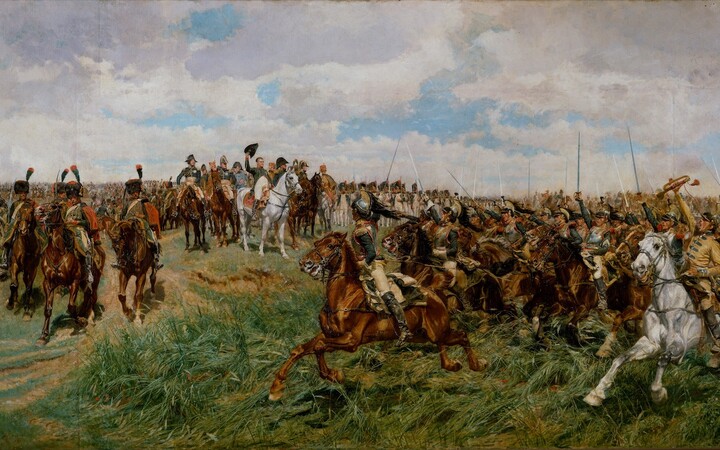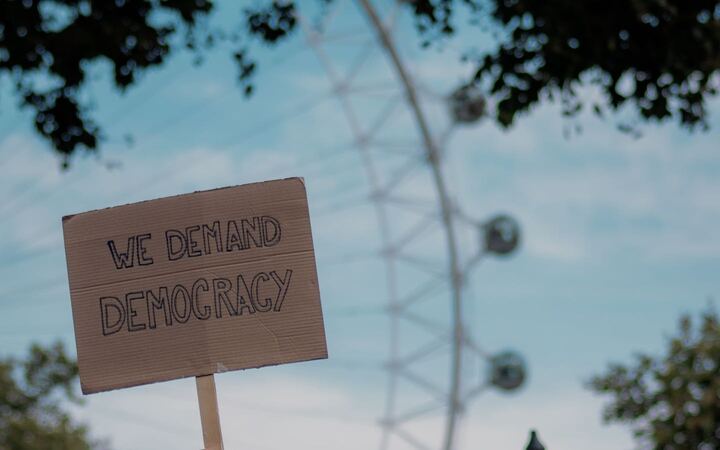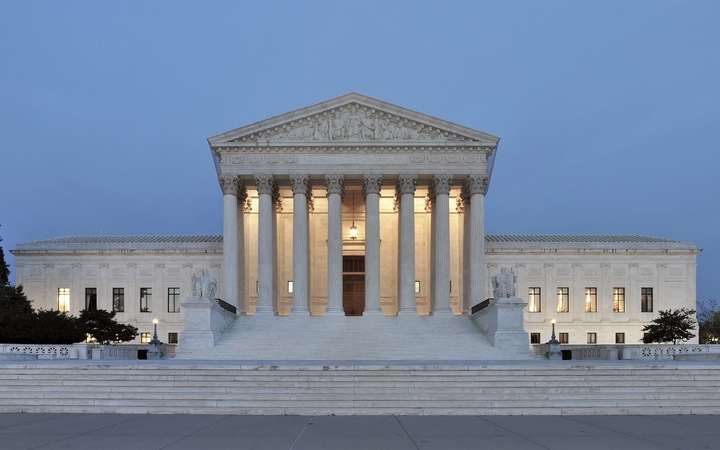Once, when I was 12, my parents asked me what my favorite animal was. And I thought:
OK, self, what you’ve got here is a totally safe question. There are no “right” or “wrong” animals and no need to worry about any consequences. Let your heart soar!
At school recently, I had seen a video of a sloth in the jungle. In its slow movement and creepy perma-smile, I saw something zen, something that I wanted for myself.
So I said, “sloth”.
Looking back, I’m pretty sure my parents did intend for this to be a fun innocent question. So they were probably surprised to find themselves infuriated by my answer.
“A sloth”, they asked? “Why a SLOTH?”
I knew immediately that I had erred. But I wasn’t sure how. I could only manage, “I… like sloths?”
“But why? What is it you like about them?”
My parents kept badgering me for a justification. But, being 12, I was unable to articulate that sloths gave me a sense of existential calm. So I struggled to answer. And as we went back and forth, I gradually came to realize that:
- My parents often complained about my poor work ethic at school.
- My parents were frustrated by my (lack of) response to their feedback on said work ethic.
- Sloths move very slowly.
- If you were primed to see laziness everywhere, you could see sloths as “lazy”.
- My parents were convinced that I’d chosen “sloth” as a passive-aggressive rebuke of the primary thrust of their recent parenting.
I kept protesting that I just thought sloths were “nice”. My parents seemed torn between (a) thinking I was lying and (b) thinking that only a very lazy person could think anything positive about sloths.
Finally, it seemed to dawn on them that I wasn’t going to change my story, and they couldn’t actually punish me for picking the wrong animal. So they left the room—still angry—and I was off the hook.
Which is good because even without punishment, if you ask a 12 year old what their favorite animal is and then get extremely angry about their answer, that’s the kind of thing they might complain about on the internet many years later. I think of this often when I interact with children today.
Still here? OK, here’s a thought experiment:
Suppose there’s an idea. Thinking about it makes you unhappy. But once you’ve learned the Idea, it’s hard to get it out of your mind. Slowly, you sink in deeper and deeper, seeking out more information and constantly bringing it up in conversation. You filter all other information through the Idea. The Idea is to important to you that you even cut ties with some loved ones who disagree with you about it.
This, of course, is an analogy for politics.
One of my strongest beliefs is that way too many people allow politics to play way too large a role in their emotional lives. Of course, elections matter. The world could be better and most potential improvements intersect with politics somehow. But the way we spend our energy on politics is poorly optimized for improving the world and well-optimized for sucking up all our time and making us miserable.
Sometimes I talk to relatives that I haven’t spoken to in months, and within minutes the conversation turns to politics. This never leads to arguments, thanks to my monk-like calm and empathy and impartiality. But no one ever seems to learn anything or shift their views and I feel sad and embarrassed that we aren’t talking about something deeper.
I hate it. In particular I hate how so much information is now slanted to support a particular view because slanted information gets engagement and so now people expect information to be slanted but de-slanting facts is hard so instead people have adopted this horrible strategy of filtering all information by first determining what “side” it comes from then finding lazy justifications or accept or reject it accordingly.
Once an issue has political salience, people seem to lose the ability to think rationally about it. Politics seems to impede the ability of good ideas to spread. This is not a good thing if you think the world needs complicated solutions.
This mode of thinking seems to be spreading beyond politics, too. (If you search, you can find several charming “rebuttals” of my seed oil post that display the same scientific rigor and generous spirit so common in political discourse today.)
I bring this up because a huge fraction of the modern internet is devoted to serving up never-ending political content. And I think that serving up that content is bad. It’s preying on human weakness, and I think we should mentally classify the act of serving it up in the same category as making cigarettes or running casinos or selling alcohol to alcoholics or optimizing phone games to addict people and extract thousands of dollars by selling loot boxes to “whales”.
But damn it, sometimes I want to write about politics. So, here, hidden below an engagement-destroying story about sloths, I’d like to preregister my best guess of the main factors influencing the US 2024 presidential election. I’m doing this because I’ve noticed that after elections happen, people often start giving simple monocausal narratives. But if everything was simple and predictable, it should be predictable in advance, right?
Of course, all these factors are already priced into prediction markets and election forecasts.
Immigration
- People really do not like illegal immigration.
- People really do not like economic migrants using refugee claims.
- The number of people entering the country has been much higher under the Biden than it was under Trump.
- Trump successfully convinced Republicans to block Biden’s proposed 2024 border security bill, which might have brought those numbers down.
- (Strongly favors Trump)
Inflation
- People really do not like inflation.
- Incumbent parties around the world have been severely punished for post-COVID inflation.
- The American Rescue Plan Act of 2021 led to lots of waste and fraud.
- Price increases are now under control, but absolute prices remain high.
- (Favors Trump)
Money
- Harris has much more money than Trump.
- But both candidates are well beyond the level where money has diminishing returns.
- (Slightly favors Harris)
Abortion
- People really do not like abortion restrictions.
- Trump chose a relatively moderate position.
- (Favors Harris)
Democracy / January 6
- People do not like what happened on January 6.
- But they’ve somewhat forgotten about this.
- And many people believe there was fraud in the 2020 election.
- (Modestly favors Harris)
The candidates
- People like Harris more than Trump as a human being.
- Harris took on many unpopular positions when running for president in 2019.
- Biden is unpopular and Harris—being vice-president—has limited room to distance herself.
- Given her dismal performance in 2019, Harris turned out to be a surprisngly OK candidate.
- Trump is very old, but comes across as vigorous.
- (Slightly favors Harris)
The debate
- Instead of trying to debate Trump on the facts, Harris tried to needle him and make him look unhinged.
- This was effective.
- Trump refused to do more debates without suffering much reputational damage.
- (Modestly favors Harris)
Vice presidential nominees
- People like Tim Walz’s vibes.
- People don’t like JD Vance’s vibes.
- Vance was very effective in the VP debate.
- Walz was shaky.
- No one cares about vice presidents.
- Even when presidential nominees are in their late 70s, and even when one of the presidential nominees is the nominee because they’re the vice-president of a previous late 70s nominee, people still don’t care about vice presidents.
- (Slightly favors Harris.)
Foreign policy
- People barely think about foreign policy when voting for president.
- Even though the president has almost full control of foreign policy and limited control of domestic policy, people still barely think about foreign policy.
- People don’t much care about the war in Ukraine.
- But among those who do care, Republicans are divided and Democrats are united.
- People only care a little about the war in Israel/Gaza.
- But among those who do care, Democrats are divided and Republicans are united.
- (Slightly favors Trump)
AI
- The public has mixed feelings about AI.
- The candidates don’t have particularly clear policy differences.
- Few people are voting based on AI.
- (Even-ish)
Housing
- People care a lot about housing costs.
- Elite opinion is shifting YIMBY.
- The candidates don’t have particularly clear policy differences.
- (Even-ish?)
Economy
- The stock market at record highs.
- Unemployment is low.
- People don’t feel very optimistic.
- People fondly remember the economy of 2016-2020.
- Did I mention people hate inflation?
- (Modestly favors Trump)
Crime
- Public disorder is believed to have increased post-COVID and post-George Floyd.
- Police enforcement is down.
- People mostly want a tougher approach.
- (Favors Trump)
Trade
- Many people think that more tariffs sounds good.
- I doubt they would appreciate the resulting price increases.
- Harris was clever to try to label this a “sales tax”, but that didn’t break though.
- (Slightly favors Trump)
Wokeness
- People don’t like it.
- Harris was quite woke when running for president in 2019.
- In this election, Harris carefully avoided all wokeness.
- (Modestly favors Trump)
The electoral college
- (Modestly favors Trump)
And finally, a few questions:
-
If Trump had refused to debate Biden until after the conventions, would Biden still be the nominee and Trump cruising to an easy victory?
-
Why didn’t Harris choose Josh Shapiro for vice president, given that Shapiro is an A+ political talent in the most important swing state?
-
If Nikki Haley were the Republican nominee, would she be cruising to an easy victory against Harris?
-
Was Trump able to get the nomination only because he convinced many people that the 2020 election was stolen, meaning he wasn’t branded as a loser like Hilary Clinton, Mitt Romney, John Kerry, Al Gore, and George H.W. Bush were?
-
Why did Biden insist on running for a second term despite being 81 years old? Why did Democratic elites assist him by making sure there was no real primary?
-
If there had been a Democratic primary, would Gretchen Whitmer or Mark Warner or Tim Kaine or Amy Klobuchar or Josh Shapiro have emerged as a stronger candidate and now cruising to an easy victory against Trump?
P.S. Today’s link is to the Forecasting Research Institute on Can Humanity Achieve a Century of Nuclear Peace?
“What is the probability that by 2045, one or more incidents involving nuclear weapons will cause the death of more than 10 million humans, within a five-year time period?”
Group Number of respondents Median forecast Experts 110 5% Superforecasters 41 1% The public 401 10%

















